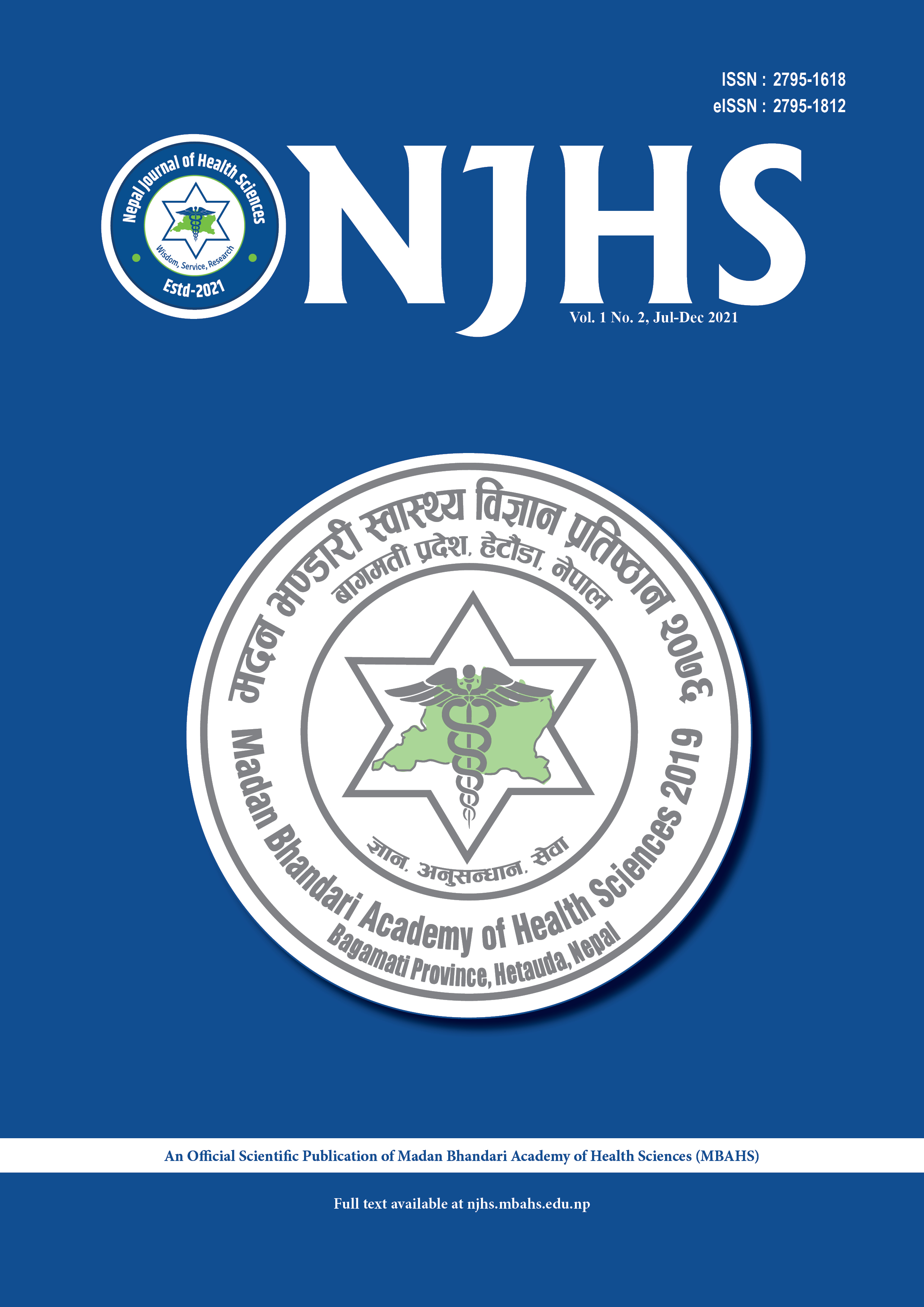Spectrum of Oral Cavity Lesions and its Clinico-Histopathological Correlation
DOI:
https://doi.org/10.3126/njhs.v1i2.42378Keywords:
Clinical presentation; correlation; oral cavity; risk factorsAbstract
Introduction: Oral cavity lesions comprise a wide spectrum of diseases that varies from non-neoplastic to neoplastic. The clinical evaluation alone is insufficient for proper diagnosis in most cases. So, histopathological examination is the gold standard method for diagnosis and management of patients accordingly.
Objective: The present study was done to evaluate the histopathological spectrum of oral cavity lesions and compare them in relation to age, sex, site, clinical features, risk factors, and clinical diagnoses.
Methods: This prospective cross-sectional study enrolled 127 cases of oral biopsies which were received at the Department of Pathology, Tribhuvan University and Teaching Hospital, Kathmandu Nepal, from May 2018 to April 2019 for histopathological examination. Specimens were fixed in 10% formalin and subjected for tissue processing and Hematoxylin and Eosin stained sections. Data entry and analysis were done by using SPSS 24 version where frequency and percentile were calculated.
Results: Total cases were 127 with slight female predilection and the age group of 50-60 years (mean age of 44.24 years) were commonly affected. The tongue being the most common site, frequently lesions presented as swelling. Most of the lesions were non-neoplastic comprising 45% whereas malignant lesions comprised 23.6%. Smoking increased the risk of malignancy by 2 fold. The most common benign lesions were squamous papilloma & fibroepithelial polyp whereas the malignant lesion was squamous cell carcinoma. Sixty percent of clinical diagnoses didn’t show correlation.
Conclusions: Oral cavity lesions have a wide spectrum of distribution in age, sex, site, and clinical presentation. Initially, oral lesions may present with subtle symptoms which may cause underdiagnosis. Thus, histopathological diagnosis is a must to rule out malignancy.
Keywords: Clinical presentation; correlation; oral cavity; risk factors.
Downloads

Downloads
Published
How to Cite
Issue
Section
License
Copyright (c) 2022 Deepshikha Gaire, Anil Dev Pant, Daisy Maharjan, Usha Manandhar

This work is licensed under a Creative Commons Attribution 4.0 International License.



